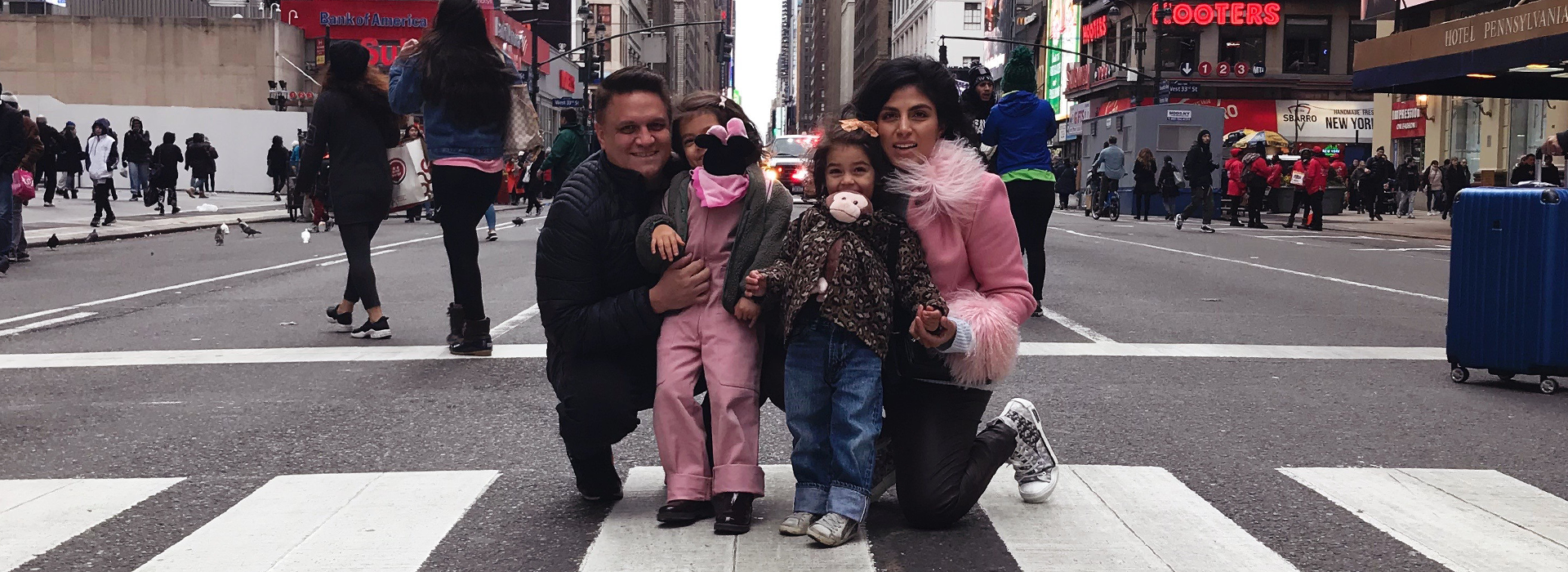
Connecting the digital dots: Miguel Gamiño Jr. builds cities up with technology that brings people together
November 10, 2020 | By Amy KoverBack in 2011, on his second day as El Paso’s first chief information officer, Miguel Gamiño Jr. got a call from a local reporter. She wanted to know why people who contacted the Texas city’s automated 911 dispatch system were experiencing momentary delays. “All of a sudden, I realized how grave my responsibility was,” remembers Gamiño, who until then had been a tech entrepreneur. “Technology isn’t just an entity unto itself, but a tool to do things that actually matter to people, like getting fire trucks and ambulances to the person who needs them two seconds sooner, not two seconds later.”
Since then, Gamiño has lived at the intersection of technological innovation and urban life. As the head of Mastercard’s City Possible, he oversees a global platform that brings public and private organizations together to work toward solving big urban problems, and whose unique solutions now reach more than 500 communities in more than 50 countries worldwide.
That includes initiatives such as Mastercard City Key, a physical or digital tool that combines identification, access and payment functionality that can be used for identification, to pay for transit and to receive government subsidies and services, and Mastercard City Insights, a data platform that helps municipalities around the world make better informed decisions.
Raised in El Paso, Gamiño sees the city of 680,000 as the foundation of everything he does. He earned his bachelor’s degree in accounting and computer information systems at the University of Texas at El Paso, developing the skills needed to innovate while staying mindful of city budgets. Shortly after college, he launched a tech startup, joining entrepreneurs such as Beto O’Rourke, who later become a Texas congressman and U.S. presidential candidate, to build El Paso’s diverse economic landscape. (Though the two young men ran competing startups, they went on to collaborate on various El Paso initiatives and remain friends today.)
And it was this El Paso community that taught him the value of racial diversity. “Growing up, I was blissfully ignorant of racism,” remembers Gamiño, whose grandparents immigrated from Ciudad Juárez, Mexico, just across the Rio Grande. “When I moved on, I realized how different the rest of the world was.”
After leaving El Paso in 2014, he took those lessons first to San Francisco and later to New York City, where he served as the city’s chief technology officer. In the Big Apple, he learned how difficult it can be to develop technological solutions for a city of 8.5 million people. He had to engage with a complex portfolio of public infrastructure, public-private partnerships and digital initiatives to make strides toward universal broadband, as well as keep the digital city running smoothly. He also came to the realization that technology, not just the digital kind, has always powered cities. “Building aqueducts or paved roads was technology that came forward to make cities better for people who lived there,” he says. “It’s just that now the medium we use is digital."

Miguel Gamiño Jr. with his daughters Mariana, 4, left, and Mia, 5, near the Brooklyn Bridge.
During that time, Gamiño developed a deep affection and respect for the resilient residents of New York — and a dedication to securing and creating a path to prosperity for all families, including his own young daughters. In the wake of the pandemic, City Possible has helped leaders respond to the crisis, keep its citizens safe and plan for the recovery, expanding access to anonymized and aggregated data from Mastercard City Insights, disbursing aid to tens of thousands of New York’s most vulnerable citizens through more than 30 community organizations via Mastercard City Key, and partnering with the MTA and the private sector, including Lyft and Citi Bike, to power a variety of mobility options to ensure that everyone can commute to work safely and with peace of mind.
Mastercard is also cementing its commitment to New York City and its diverse pool of talent by dramatically expanding its Tech Hub there next year — one of eight state-of-the-art technology centers around the globe, helping the company attract the best innovators, work more closely with their customers and deliver better solutions faster.
Gamiño envisions a City Possible plaza approach to convening city officials and corporate leaders, digitally and in-person, to continue to be a powerful engine for progress. “Our new Tech Hub is an opportunity to provide inspiring and new ways to use space so that people can connect and get the best out of our new normal,” he says. Spoken like someone who believes in the superpower of the collaborative community.
Photo top: Miguel Gamiño Jr., his wife Karina, and their two young daughters in Times Square.
